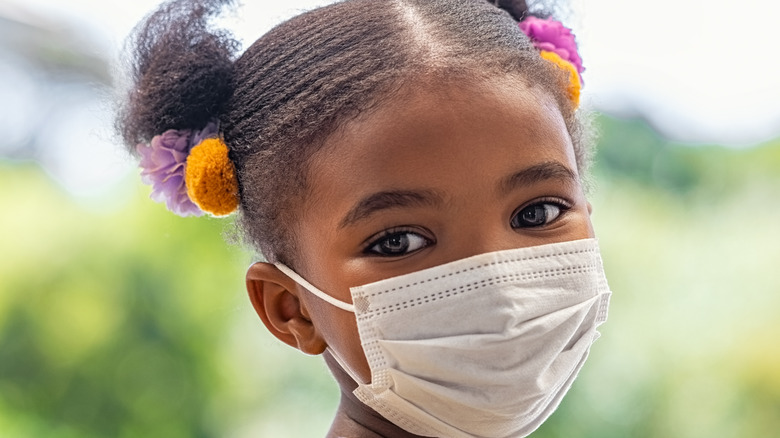Should You Be Wearing Face Masks With Carbon Filters?
Face masks have become a part of everyday life. The global face mask market was estimated to be worth $38.9 billion in 2021, according to a market analysis report published by Grand View Research. Despite states no longer requiring masks to be worn in public (per US News and World Report), many people now understand the value and importance of face masks.
There are many different types of face masks, including cloth masks, medical masks, and respirators that allow for filters, according to the Centers for Disease Control and Prevention (CDC). One such option that has become popular is a mask with carbon filters. People who use these filters claim that they improve the efficacy of the mask and help fight off COVID-19, in addition to other virus particles. However, while some health experts claim that these filters help protect against viruses, others say that they may not be as effective as we think.
Carbon filters may not be safe to use in masks
Filters are one of the best ways to provide extra protection against viruses. The second layer of protection helps stop virus particles by creating an extra surface area to prevent them from entering the body, according to NPR. In the case of carbon filters, however, the material may make it easier for virus particles to stick. Additionally, no research has been done on the efficacy of carbon filters, so their safety remains in question.
"Carbon and charcoal are meant to filter contaminants from water," Dr. May Chu, a clinical professor of epidemiology, told Mental Floss. "We don't know if breathing in charcoal fragments of particles is good for your lungs."
It's best to use masks and filters recommended by the CDC. One filter type that we know is safe is the high-efficiency particulate air (HEPA) filter. HEPA filters can effectively stop virus particles from being transmitted by eliminating them from the air, according to Nature.


